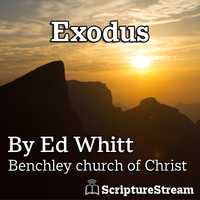I Corinthians 11:3-16 is a much disagreed upon passage. It is misunderstood and neglected. However, its instructions are greatly needed. In the lines that follow I will attempt to direct an objective study of this passage.
Divine revelation
The instructions of 1 Corinthians 11:3-16 are a matter of divine revelation and not just a matter of custom. Verse 16 teaches that the rules Paul had given are binding and any other practice relative to his subject is not recognized. The verse is simply saying that if anyone is contentious about what Paul has herein taught, neither the apostles nor the churches of God have or recognize such a practice. Verses 4 and 5 show that when a man and a woman do not follow the instructions herein given, the man dishonors his head, which is Christ, and the woman dishonors her head, which is man. Since to violate the passage dishonors Christ, it must be a matter of revelation and not just custom.
Applicable today
The instructions are applicable today, and not just when men and women had spiritual gifts. Paul is not here discussing spiritual gifts; he is discussing the line of subjectivity – that is, God is head of Christ, who is head of man, who is head of woman. He then develops the idea of woman’s subjection to man. Since the very point of being stressed is as needed today as it was then, we must conclude that the instructions are also applicable today. Further, in verse 7 we read: “For a man indeed ought not to cover his head, forasmuch as he is in the image and glory of God.” Thus, the reason a man is not to cover his head is not that he had spiritual gifts, but that he is in the image and glory of God. Also, the woman is to cover her head because she is of man, not because she had spiritual gifts (verses 9 and 10). Man with spiritual gifts was in the image and glory of God, and man without spiritual gifts is in the image and glory of God. Woman with spiritual gifts was of man, and woman without spiritual gifts is of man. Thus, men and women with spiritual gifts and men and women without spiritual gifts were and are to obey the passage. “Every man praying (that gets the one without spiritual gifts) or (not and) prophesying (that gets the one with spiritual gifts) having his had covered, dishonoreth his head.” As long as man is in the image and glory of God and as long as woman is of man, the passage will be applicable.
Instructions general in application
The instructions are general in application, and not just limited to the assembly. The assembly is not named, mentioned, nor implied in the passage. And wherever the woman with spiritual gifts was prophesying, it was not in the assembly; for she is commanded to be in silence there (1 Corinthians 14:34-35). Further, as the point under consideration was not spiritual gifts, but woman’s subjection to man in the assembly and out of the assembly, the conclusion is inevitable that the instructions are applicable in or out of the assembly. They are general, regulating the woman’s behavior in relation to man; her place is one of subjection.
Covering of long hair
The covering of the passage is long hair. And not an artificial covering. After talking about the covering for ten verses, Paul asked a question about it. Then he answered. Now, Paul’s answer to his own question ought to give some light on the identity of the covering he was talking about. In verse 13 he asked: “Judge in yourselves is it comely (befitting) that a woman pray unto God uncovered?” His answer: “Doth not even nature itself teach you, that, if a man have long hair, it is a shame unto him? But if a woman have long hair, it is a glory to her: for her hair is given her for a covering.” He asked about the covering and then answered with long hair, not a veil. Thus, Paul tells us what kind of covering he was talking about. If he had asked the question of verse 13 and then answered: “Doth not even nature itself teach you that, if a man have a veil it is a shame to him? But if a woman have a veil, it is a glory to he: for her veil is given her for a covering,” I would make myself look absurd to argue that he was not talking about a veil, but about long hair. Just so, as he answered with long hair instead of a veil, one looks absurd to argue that he was not talking about long hair, but about a veil. Then verse 15 clinches it by saying that a woman’s long hair is given her for a covering.
What about the Greek?
At this point, someone usually objects by saying: “But the Greek will not bear you out on this.” Well, let us see about that. In verses 5, 6, 7, and 13 the word for covering is “katakalupto;” for uncovered it is “akatakalupto.” Verse 4 does not have a word for covering in the Greek. It is implied, but not stated. “Kata” is a preposition meaning “down” (Thayer, p. 327), or “an abundance of that with which a thing is filled up or as it were covered up.” (Thayer, p 329); thus, fully covered. “Alpha” (a) prefixed negated; instead of covered , it is uncovered. “Kalupto” is the general word for “covering.;” it does not have identity. It could be a covering of a veil, of long hair, or of a tow sack and still be “kalupto.” “Kalupto” is the word used in Matthew 8:24 where the ship was covered (kaluptesthai) with waves. It is the word used in 1 Peter 4:8 where love covers (kaluptei) a multitude of sins. It is the word in Luke 8:16 where no man lights a candle and covers (kaluptei) it with a vessel. So, we see that “kalupto” is just a covering and can be any kind. From the word one can not tell what the element of the covering in any passage is. The context must identify the element of the covering. Now, the context of our passage shows that the covering is not love, waves, or some vessel; but that it is “long hair.” In verse 13 Paul asked: “Is it fitting that a woman pray unto God uncovered (akatakalupton)?” He answered with the element of “long hair.”
In verse 15 we have a different Greek word for covering. Here it is “peribolaion.” This word means an artificial covering; it has identity. It is defined: “A covering thrown around, a wrapper, a mantle.” (Thayer, p. 502). The preposition “for” in the phrase “for a covering” is “anti.” “Anti” means: “instead of, in place of, to serve as covering.” (Thayer, p. 49). Thus, we have Paul saying that a woman’s long hair is given her instead of an artificial covering, or to serve as a covering. It seems as though inspiration might have foreseen that men would try to get an artificial covering from the passage! Berry’s Interlinear reads: “But if a woman have long hair; glory to her it is; for the long hair instead of a covering is given her.” Nestle’s reads: “But a woman if she wears her hair long it is a glory to her because the long hair instead of a veil has been given her.”
Now, if Paul had talked for ten verses about the Lord’s Supper and then concluded by telling us that the unleavened bread and fruit of the vine were the elements of the Supper, I would look pretty foolish to argue that some other elements were meant in the first ten verses. Just so, as he did talk about the covering for ten verses and then concluded by telling us that long hair is the element of the covering, does not one make himself look foolish to argue that some other element was meant in the first ten verses? When Paul said that long hair was given a woman instead of an artificial covering, that should settle the matter of the element of the covering under consideration. And he said that in Greek! So, the Greek does bear out my exegesis of the passage.
Four lengths of hair
The ones who think an artificial covering is enjoined in the passage try to prove it by verse 6. Their argument goes like this: “The covering of vs. 3-13 is man-made (artificial). Verse 6 – ‘for if the woman is not veiled, let her also be shorn:…’ Note the word also – it is significant. It shows conclusively that the covering Paul has under consideration at this point is something other than hair, because if her hair were the covering here and she did not have it on, she would already be shorn before Paul said, ‘Let her be shorn’.” (THE BIBLE STANDARD, May, 1975, p. 110). But “let her also be shorn” does not prove the covering was “something other than (long) hair.” It could mean something other than cutting her hair short like a man’s i.e., shear of shave it. I believe the context proves that this is exactly what it does mean. I have found “long hair,” hair “shorn,” and the head “shaved” in the context, but no one has found an artificial covering there yet!.
In verse six, four lengths of hair are under consideration, not a veil and two lengths (shorn or shaved) of hair. “For if a woman be not covered (hair cut short like a man’s, but not as short as a burr), let her also be shorn (cropped): but if it be a shame for a woman to be shorn of shaven, let her be covered (have long hair).”
Thus, we have : (1) the covered state – long hair, (2) the uncovered state – hair cut like a man’s, but longer than a burr, (3) shorn – a burr, and (4) shaved – like a man’s face. Paul is simply saying that if a woman is going to cut her hair short and look like a man, let her make her shame complete by cropping her hair or shaving her head.
Why did Paul just demand this covering when praying or prophesying?
As long hair is the covering, to have long hair when praying or prophesying is to have the covering all the time. A woman’s hair is not something she puts on and off at will. If she has long hair when praying, she has long hair all the time. Thus, Paul just said when praying or prophesying. Now, we have no women who prophesy today, but we do have women who pray. And if their prayers are very consistent, and if they have the covering of long hair when they pray, they have the covering the passage enjoins all the time. It would be impossible for our women to be covered with long hair when they pray and then not have the covering at other times. Therefore, if our women have long hair when they pray, they cannot appear any place or any time without the covering Paul enjoins! In other words, when he enjoined the covering of long hair when praying, that took complete care of the situation; nothing further needed to be specified.
How long is long?
This is determined by both the context and the word Paul used. From the context we see:
- Woman is to be in submission to man.
- A covering of long hair is the token of this submission.
- Thus, a woman must have the token of submission, that is, hair long enough to clearly distinguish between her and a man.
From the word “katakalupto” we see:
- The covering is to fully cover or be down the head.
- Long hair is the covering under consideration.
- Thus, woman’s hair must be long enough to fully cover or hang down the head.
The conclusion is that a woman’s hair must be long enough to fully cover and to clearly distinguish between her and man. And conversely, man’s hair must be short enough to not hang down the head and to clearly distinguish between him and woman.
Does this prohibit a woman from cutting her hair?
Does this mean that it is wrong for a woman to cut her hair? Not necessarily, for a woman can cut her hair and still have hair down the head that distinguishes between her and a man. If a man had hair down to his waist and then cut off four inches, would he have hair short enough to satisfy the demands of the passage or would he still have long hair? All agree that he would still have long hair. Just so, when a woman has hair down to her waist and then cuts off four inches, she still has long hair. She still satisfies the demands of the passage and has not sinned.
Needed applications
Woman sins when she cuts her hair too short to satisfy the meaning of “katakalupto” – that is to be a covering long enough to fully cover or hang down the head., and she sins when she cuts her hair so short that it does not clearly distinguish her from man.
Man sins (dishonors his head – Christ) when he lets his hair grow too long to satisfy the meaning of “akatakalupto” – that is when it is long enough to hang gown the head and he sins when he lets his hair grow so long that it does not clearly distinguish him from a woman who has hair long enough to satisfy the demands of the passage.
Jesse G. Jenkins



